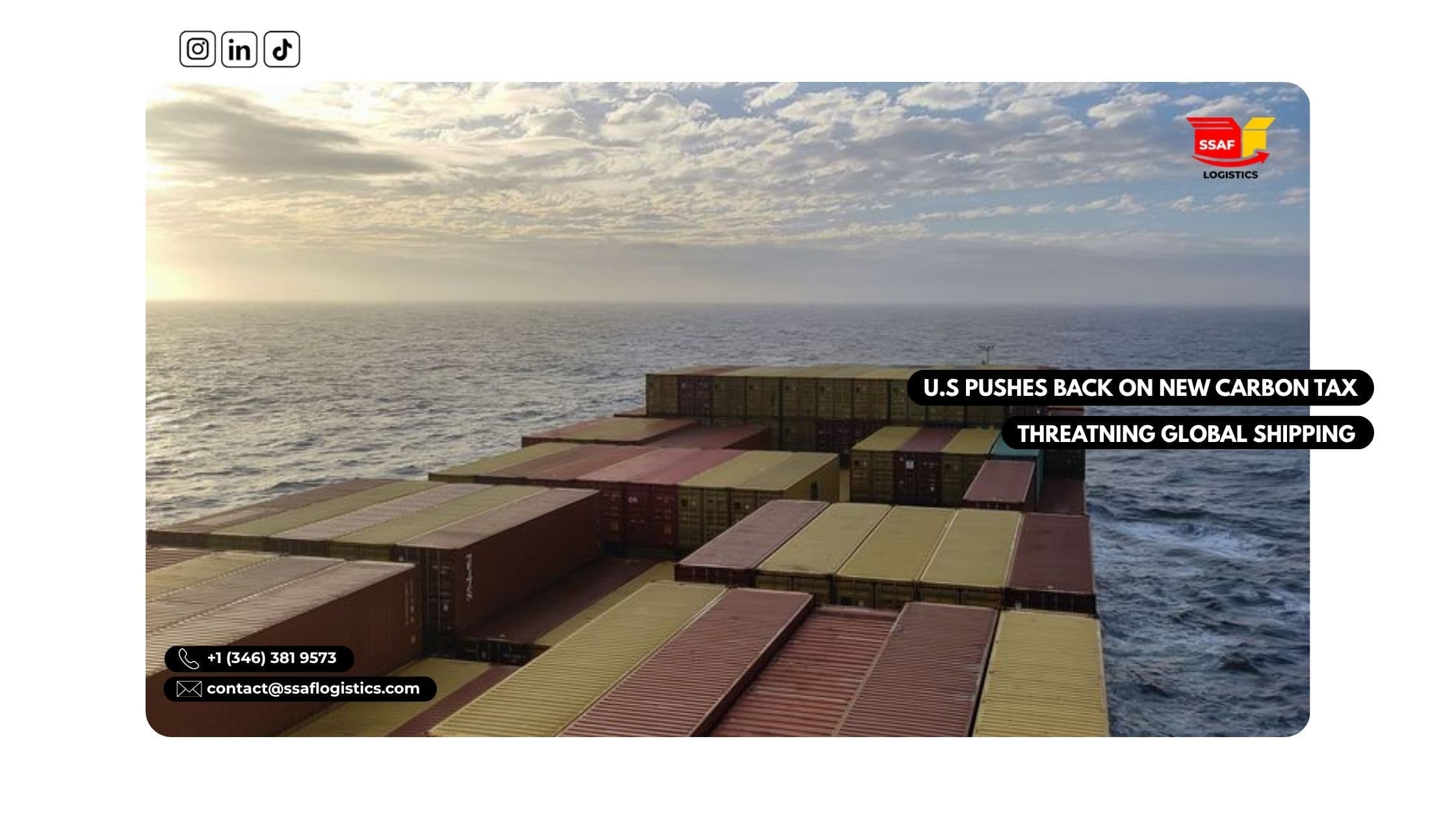
By Andrea Davila
The United States has issued stern warnings to nations considering support for a new carbon tax on ocean shipping, threatening measures like increased port fees, denied port access, and even visa or trade penalties.
At the heart of the dispute is a proposed “Net-Zero Framework” under the International Maritime Organization (IMO), which would levy charges on ships that exceed greenhouse gas emissions limits. Proceeds would fund cleaner marine fuels and help developing nations adapt.
While many countries support the plan, the U.S. strongly opposes it. American officials argue the tax would impose unfair burdens on U.S. shipping and consumers, and assert it represents an unapproved global tax regime.
To deter approval, the U.S. has signaled possible retaliation: port access restrictions, visa sanctions, tariff countermeasures, and reciprocal port charges on recipient countries.
The conflict is intensifying: the U.S. has already begun imposing docking fees on Chinese-flagged or built vessels, prompting China to respond in kind. These tit-for-tat fees risk distorting global shipping flows.
As the IMO meets to finalize the emissions plan, SSAFLogistics and other players in the freight and shipping industry must track how these geopolitical and regulatory tensions unfold — because changes here could ripple across global supply chains.
Related Blog Posts

![[object Object]](/_next/image?url=https%3A%2F%2Fcdn.sanity.io%2Fimages%2Fj6rggeis%2Fproduction%2Fbba2d2079dac20683422661d5e5f67b06d1ba67f-2240x1260.png&w=3840&q=75)
![[object Object]](/_next/image?url=https%3A%2F%2Fcdn.sanity.io%2Fimages%2Fj6rggeis%2Fproduction%2F5fa7c37567e0bdff77242deef8ed02f99e344934-2240x1260.png&w=3840&q=75)
![[object Object]](/_next/image?url=https%3A%2F%2Fcdn.sanity.io%2Fimages%2Fj6rggeis%2Fproduction%2F480075991c33a542f79cfa59b22ef03471c08e57-2240x1260.png&w=3840&q=75)